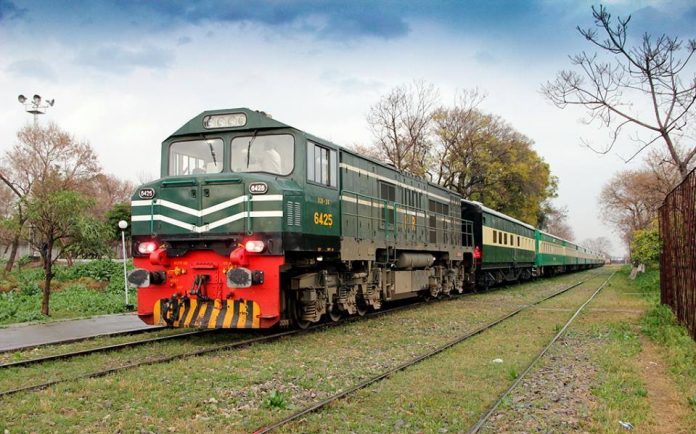Federal Minister for Railways Muhammad Hanif Abbasi on Tuesday declared the transformation of Pakistan Railways (PR) as essential to the country’s economic growth, linking its success directly to high-stakes ventures like Thar Coal, Reko Diq, and regional freight connectivity.
Speaking at a “Meet the Press” event at the National Press Club, Abbasi used the occasion to highlight what he called “100 days of meaningful progress” under his watch. He credited Prime Minister Shehbaz Sharif for keeping rail reform at the heart of his agenda and acknowledged the premier’s recent praise of his performance.
Abbasi made it clear: without the comprehensive upgradation of Main Lines ML-1, ML-2, and ML-3, the full-scale development of the railway network—and its role in national logistics—will remain unrealized.
Turning to the provinces, he hailed Punjab Chief Minister Maryam Nawaz Sharif for her hands-on role in modernizing the province’s railway infrastructure. The Punjab government, he said, had committed Rs. 250 billion over three years for the complete renewal of the Lahore–Rawalpindi rail track, a revamp expected to slash journey times between the two major cities to just two hours and benefit more than 30 million people.
Beyond that, Punjab has earmarked Rs. 50 billion for the development of eight railway stations and Rs. 9 billion for the upgrade of level crossings—a move aimed at reducing accident risks at critical junctions.
Abbasi noted that the Balochistan government has also stepped up, allocating Rs. 3 billion toward upgrading existing stations and establishing new ones, with promises of increased funding. Similar railway development plans are underway in Sindh and Khyber Pakhtunkhwa, he added.
Passenger convenience, the minister said, has also seen marked improvement. Stations across the country are being equipped with information desks, sanitation facilities, modern food courts, and a centralized helpline system, developed in partnership with provincial departments under Government-to-Government (G2G) arrangements.
In a bid to streamline operations and cut losses, Abbasi announced plans to outsource the Royal Palm Golf Club, 14 railway schools (while safeguarding the education of children of railway employees), and several railway hospitals, stressing that all such processes would follow stringent transparency standards.
He revealed that 200 high-speed trains, manufactured under a technology transfer agreement with China, are currently being assembled at the Railway Carriage Factory—a step toward modernization that also boosts local industrial capacity.
Speaking on regional integration, Abbasi said the launch of a freight train link to Russia, initially scheduled for June 22, has been postponed due to the ongoing Iran-Israel conflict. Meanwhile, a rail link with Uzbekistan via Afghanistan remains under consideration as part of Pakistan’s long-term connectivity strategy.
Abbasi also confirmed the restoration of several previously suspended train services, aimed at improving mobility and access for the general public.
Perhaps most notably, he announced the closure of three underperforming subsidiaries—Pakistan Railways Advisory & Consultancy Services (PRACS), Pakistan Railway Freight and Transport Company (PRFTC), and RailCop—which he said has resulted in the first significant boost in PR’s revenue collection in 77 years.




